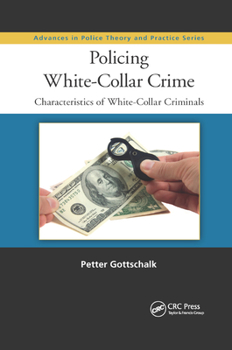Policing White-Collar Crime: Characteristics of White-Collar Criminals
Select Format
Select Condition 
Book Overview
Combating white-collar crime is a challenge as these criminals are found among the most powerful members of society, including politicians, business executives, and government officials. While there are many approaches to understanding this topic, Policing White-Collar Crime: Characteristics of White-Collar Criminals highlights the importance of police intelligence in confronting these crimes and criminals and focuses on the identification, retrieval, storage, and application of information resources.
Combining theory with case examples of some of the most notorious criminal enterprises in recent years, the book explores:
White-collar crime typologies and characteristics
The roles and structure in a white-collar crime enterprise
Sociological perspectives on why women are substantially less involved in white-collar crime
Why chief executives are vulnerable to the lure of white-collar crime
Characteristics of victims who fall prey to these crimes
Theoretically based yet practitioner-oriented, this book offers a unique study of the contingent approach to policing white-collar criminals-emphasizing the essential elements of information management strategy, knowledge management strategy, information technology strategy, and value configuration in law enforcement. By implementing the techniques presented in this volume, law enforcement organizations can better develop and implement detection and prevention methods. This effective use of the critical element of police intelligence is a powerful tool for circumventing the tactics of white-collar criminals.





